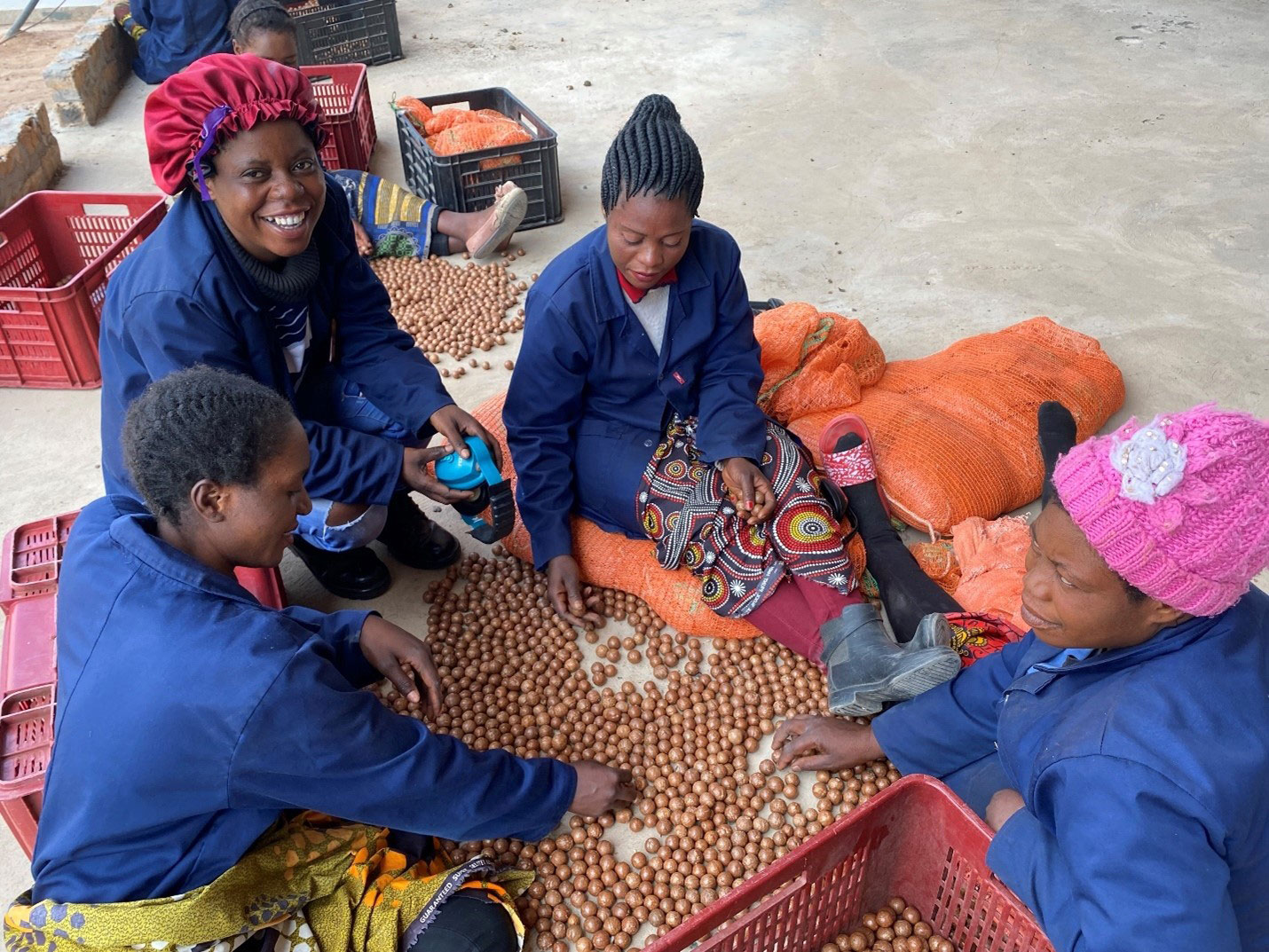
Employees explain their process of sorting macadamia nuts for quality at an agroprocessing plant in Zambia. MCC’s Constraints Analysis for the upcoming compact with Zambia determined the country’s agriculture sector may be the key to unlocking inclusive economic growth.
As the world observes the International Day for the Eradication of Poverty, MCC highlights ten new reports that showcase the agency’s evidence-based approach to reducing poverty and promoting growth. The countries that partner with MCC often face a host of development challenges, but every challenge does not restrict economic growth and poverty reduction. That is why MCC works with partners to examine and prioritize the key underlying issues, or root causes, that constrain economic growth in a given country through a constraints analysis. The constraints analyses conducted by MCC are one of the major tools used to understand the best practical and customized ways to reduce poverty in our partner countries.
Follow the Numbers
MCC has recently published a series of new reports summarizing these analyses in ten different countries, including Belize, Indonesia, Kiribati, Lesotho, Malawi, Mauritania, the Solomon Islands, Timor Leste, Kenya, and Zambia. These reports have supported the design of MCC’s strategic investments in these countries by paving the way for conversations with partner governments on the best opportunities for economic growth and poverty reduction.
Developing the constraints analysis is a key component of MCC’s evidence-based approach to development assistance. Economies need a variety of ingredients to grow and thrive— infrastructure, human capital, a conducive business environment, access to finance, and more. The constraints-to-growth approach is based on the idea that targeting an economy’s scarcest ingredients—the most binding constraints to growth in that country—is critical to promoting economic development. By further examining the root causes of these constraints, it is easier to understand why an economy lacks the necessary components for greater economic growth. Further, this process helps ensure that U.S. development dollars are responsive to each country’s unique needs, and targets investments towards activities that give MCC the best opportunity to promote sustainable, poverty-reducing growth.
Working alongside partner governments, MCC economists assess the binding constraints to growth immediately following a country’s selection for a partnership. MCC and partner country economists consult a variety of sources to better understand the country’s economic landscape and growth challenges. This process involves discussions with government officials, the private sector, civil society organizations, academics, and more. Economists work with an interdisciplinary team at MCC to better understand how economic challenges intersect with environmental concerns as well as gender and social inclusion.
Country-Driven and Country-Led
Country ownership is the key element of the constraints analysis process and partner country governments are involved throughout the process. Our partners engage in a robust dialogue with MCC on their potential growth paths, constraints, and related evidence. Partner country counterparts also guide MCC’s stakeholder engagements by identifying critical local voices. Finally, from the short-list of binding constraints identified by the constraints analysis, our partner governments are empowered to make the final selection of the areas for MCC to fund interventions. This alignment, targeting specific areas ensures that partners maintain ownership over decision making, and promoting the sustainability of the interventions.
Beyond informing investment decisions, constraints analysis reports are also a useful resource for other stakeholders to quickly and clearly understand the economic conditions and growth questions faced by MCC’s partner countries. These reports can inform other actors in their own efforts to bolster growth and reduce poverty in an informed manner. These groups range from champions within partner countries to non-profit organizations, bilateral and multi-lateral donors, the private sector, and those within the development finance space.
Ultimately, MCC’s success in combatting global poverty is steeped in our evidence-based approach to working with our partners. As we celebrate the Global Day to End Poverty, it is our hope that others will learn from MCC’s constraints analysis process, including in MCC’s most recently selected partner countries. Read previous reports and find further details on MCC’s evidence-based approach to sustainable economic growth and poverty reduction.

